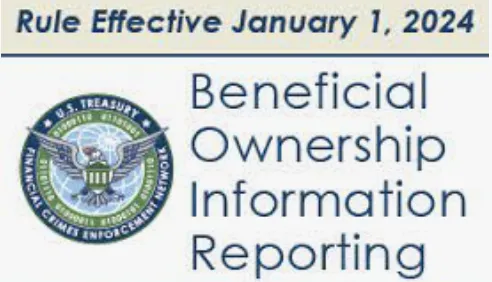Shareholders help provide funding to corporations in hope that the company prospers and they receive a return on their investment. Sometimes, shareholders will contribute their skills and services to help the corporation succeed, but how does the corporation compensate the shareholders for their services in a way that benefits everyone?
Shareholder compensation can be a tricky subject for some corporations. In this guide, we’ll help you understand shareholder compensation, determine reasonable compensation, and even how to structure shareholder salaries to benefit your company.

Key Takeaways:
- Shareholder salaries should be reasonable and comparable to non-shareholder employees to avoid abuse and ensure proper tax compliance.
- Structuring salaries to include a reasonable portion as wages helps meet employment tax obligations.
- Dividends can be utilized alongside salaries to potentially reduce shareholders’ overall tax liability.
What is Shareholder Compensation or Salary?
A shareholder salary refers to the compensation paid to an individual who is both a shareholder and an employee of a company. In the context of a corporation, shareholders are the owners or investors in the company, and they may also hold key positions and perform work as employees. Shareholder salary is a book entry (non-cash) prepared by accountants when completing financial statements.
The shareholder salaries are approved by directors. Shareholder salaries only apply to companies, and the receiver must be a shareholder of the company. A shareholder salary is paid and the salary amount is deducted from the business profit at the end of the financial year.
S-Corporations who pay their shareholders compensation should note that the wages are subject to employment taxes (i.e., Social Security, Medicare, etc). In addition, it’s essential to pay shareholders fair compensation, or their distributions may be reclassified as wages. Therefore, compensation made to corporate officers should be considered wages and treated as such for tax purposes.
Who is Considered an Employee of the Corporation?
Essentially, anyone who provides more than minor services to a corporation is considered an employee of the organization. Therefore, if a corporate officer is providing regular services to a corporation, even if it’s not a full-time effort, then the compensation needs to be paid and taxed as employee salary.
If a corporate officer provides minor services or does not provide services to the corporation, then their shares and/or salary do not need to be considered a wage. In addition, if a corporate officer provides services and is not compensated for them, then their shares are not required to be considered a salary.

What are the Tax Advantages of Shareholder Compensation?
Issuing shareholder salary or compensation can provide several tax advantages for the company and the shareholders. Here are some key tax advantages:
- Deductibility: Salary payments made to shareholders are generally deductible as a business expense for the company. This means the company can reduce its taxable income by the amount of the salaries paid, potentially lowering its overall tax liability.
- Employment Tax Savings: When shareholders receive salary payments, they are subject to employment taxes, such as Social Security and Medicare taxes (FICA taxes) and federal and state income tax withholding. By structuring shareholder compensation as salary, the company and the shareholders contribute to FICA taxes, ensuring compliance with employment tax obligations.
- Retirement Plan Contributions: Salary payments to shareholders who are also employees can be used to contribute to retirement plans, such as a 401(k) or individual retirement account (IRA). These contributions may be tax-deductible for the company and offer potential tax advantages for the shareholders, such as tax-deferred growth or tax-free withdrawals for qualified retirement accounts.
- Basis Increase: Shareholders’ company base can be increased when they receive salary payments. This can be beneficial when it comes to the taxation of distributions or the sale of shares. A higher basis can help reduce potential capital gains taxes in the future.
- Deductibility of Fringe Benefits: The company can deduct fringe benefits to shareholder-employees, such as health insurance, retirement plan contributions, or other qualified benefits. This allows the company to offer attractive benefits to shareholders while potentially reducing taxable income.
Specific tax advantages may vary based on factors such as the entity type, applicable tax laws, and individual circumstances.
What is the Best Way for a Company to Structure Shareholder Compensation?
The best way to structure a salary tax-wise for a company, including shareholder compensation, depends on several factors, including the entity type, tax regulations, and individual circumstances. Here are a few considerations:
- Reasonable compensation: The salary paid to shareholders who are also employees should be reasonable and comparable to what would be paid to non-shareholder employees in similar positions. The IRS requires that shareholder-employees receive a reasonable salary to prevent the potential abuse of paying low salaries and avoiding payroll taxes.
- Employment taxes: Structuring a reasonable salary can help ensure appropriate employment taxes are withheld and paid. Employee salaries are subject to Social Security and Medicare taxes (collectively known as FICA taxes) as well as federal and state income tax withholding. The company and the shareholder can meet their tax obligations by properly withholding and remitting these taxes.
- Distribution of profits: In addition to salary, corporations may distribute earnings to shareholders as dividends. Dividends, however, are generally not subject to FICA taxes, unlike salaries. By structuring a portion of compensation as dividends rather than solely as salary, shareholders may be able to reduce their overall tax liability.

What is Reasonable Compensation for Shareholders?
The instructions for the Form 1120S, U.S. Income Tax Return for an S Corporation, state “Distributions and other payments by an S corporation to a corporate officer must be treated as wages to the extent the amounts are reasonable compensation for services rendered to the corporation.”
Unfortunately, there aren’t specific guidelines on what is considered reasonable shareholder compensation. However, based on previous court rulings and common salary practices, there are a few factors to consider when determining reasonable compensation for shareholders:
- Experience
- Assigned duties and responsibilities
- Amount of time or level of effort
- History of dividends
- How non-shareholder employees are compensated
- Comparable salaries for similar services for other businesses in the industry
- Timing and value of bonuses given within the corporation
- Existing compensation agreements
- Evidence of a fair valuation of the salary
Ultimately, if shareholders are providing services for your corporation, it’s important to compensate them in a similar manner to a non-shareholder employee for their efforts.
Can Cleer Determine Reasonable Shareholder Compensation?
Tax laws and regulations can change, and individual circumstances can vary depending on your structure and State. Due to the complexities involved, you can book a consultation for tax guidance specific to your company’s situation and help determine the most tax-efficient salary structure.






